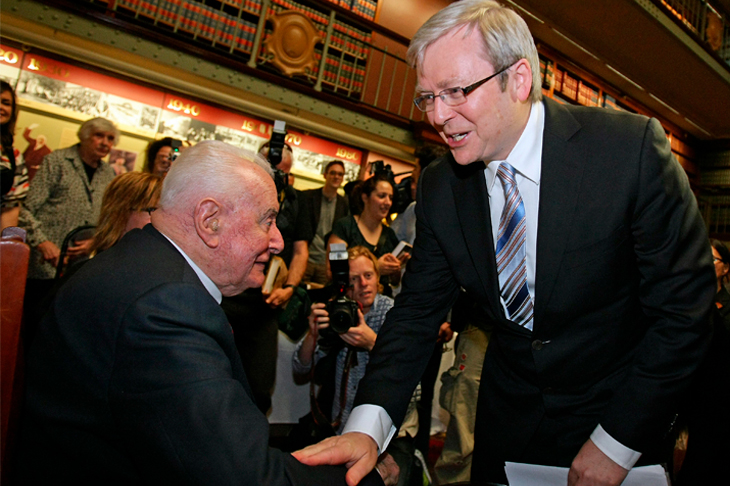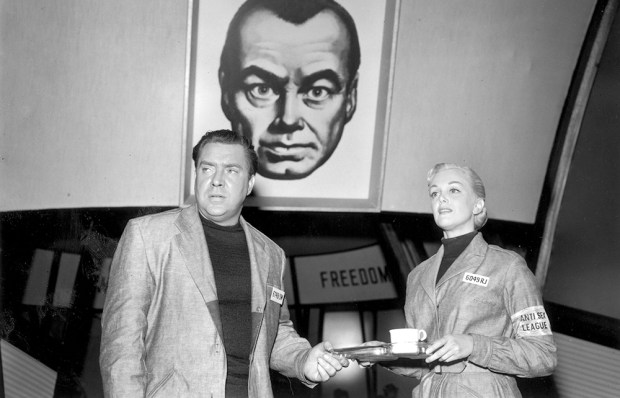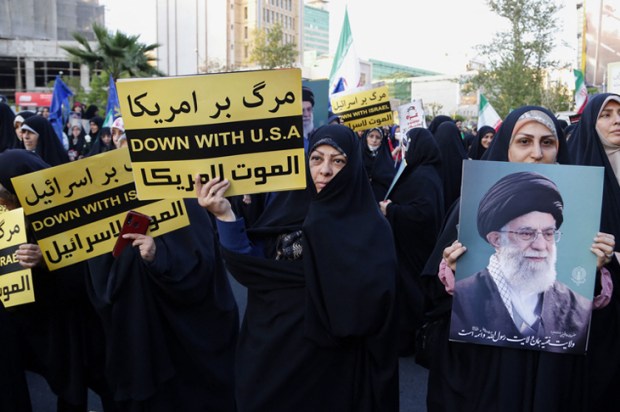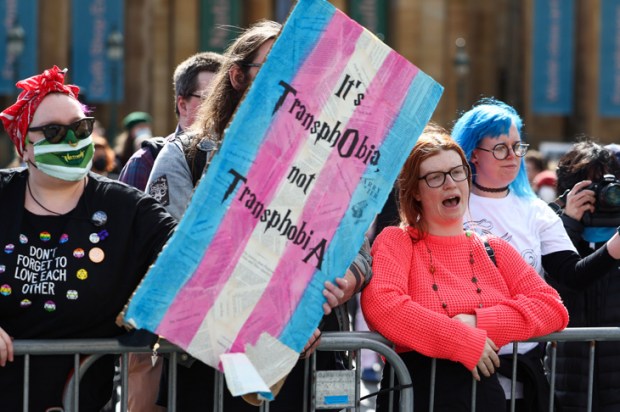As the polls soften in the final week of the campaign, two prospects loom before the electorate. A Coalition that clings to government by its fingernails and negotiates with minor parties on the right in the Senate, or a hung Labor parliament, beholden to the Greens and ‘teal’ independents, haute couture candidates who pretend to be disenchanted Liberals but whose climate policies are closer to the Socialist Alliance than Labor.
If Labor wins, Anthony Albanese will take Australia back to the Seventies, the decade in which his hero, Gough Whitlam, was prime minister and his mentor, Tom Uren, was a minister. Uren was a staunch member of the left faction, then led by Labor treasurer Jim Cairns and succeeded Cairns as leader of the left in 1977. Far from learning the lessons of Whitlam’s failure, Uren opposed the rise of Bob Hawke.
The Seventies was a decade of spiralling inflation and stagflation which had their origins in the spending of US Democrat President Lyndon Baines Johnson on social welfare and the Vietnam War. These policies continued under Republican Richard Nixon, elected in 1969. Indeed, rather than reduce spending, Nixon brought in wages and prices control to deal with rising inflation and installed his advisor as chairman of the Federal Reserve whom he pressured to reduce interest rates. By January 1973, the stock market had crashed, and unemployment took off. When Arab oil-producers in the Organisation of the Petroleum Exporting Countries put an embargo on oil exports to countries that had supported Israel in the Yom Kippur war, it ratcheted up the price of oil in the US nearly 400 per cent. Yet as the Wall Street Journal observed, ‘OPEC got all the credit for what the US had mainly done to itself.’
The parallels with the present day are ominous. Low-interest rate policies have been in place since the Global Financial Crisis of 2007-2008. President Joe Biden’s policy of restricting US oil and gas has reduced domestic supply and was coupled with big spending to stimulate the economy, while pandemic lockdowns and vaccine mandates strangled supply chains. The result was an increase in inflation from 1.4 per cent when Biden took office to 7.5 per cent in January, a year later, well before Russia invaded Ukraine. The invasion has led to a massive increase in US military spending to arm Ukraine, while Russia, like the Arabs in the Seventies, is reducing the supply of gas and oil as a weapon against the West, driving up prices.
A third factor in this diabolical recipe for global economic downturn is China’s Zero Covid strategy, driven by President Xi Jinping’s determination to keep the virus at bay until the 20th Congress of the Chinese Communist Party in November. According to one analyst, 40 per cent of China’s GDP is ‘in some form of lockdown’, driving global supply shortages and inflation, while reducing its economic growth with recessionary impacts for the rest of the world.
Albanese, who studied Marxist political economy at Sydney University, did not learn the economic lessons of the Whitlam era. Indeed, on the first day of the campaign he couldn’t even remember the Reserve Bank’s cash rate or the rate of unemployment. His strategy of being the smallest of targets means that, if he becomes prime minister, we know little of what he will do but his promise to support a wage increase of 5.1 per cent bears out the advice of George Santayana who warned that ‘those who cannot remember the past are condemned to repeat it’. If wages rise without a rise in productivity, they will inevitably lead to rising unemployment as businesses will be forced to cut employees and rely on those who are left to increase their productivity. Wage increases will also drive price increases so long as goods remain in short supply.
When not reliving the Seventies, Australia will probably take a trip down memory lane courtesy of Albanese’s other hero, former Labor prime minister Kevin Rudd. Just as Rudd promised a 2020 Summit to figure out his policies, Albanese has promised to ‘hit the ground reviewing’ as Prime Minister Scott Morrison aptly put it in the last leaders’ debate, promising 53 reviews, roundtables, or inquiries. As with Whitlam and Rudd, these reviews alone will ensure that under Albanese the public sector grows.
While Labor has been parsimonious in spelling out policies, the Greens, on whom Labor will almost certainly rely for support in the Senate and perhaps in the lower house, have a full suite of economy-wrecking policies that they will try to force on the electorate. Albanese has been busy this week reassuring voters that he will not form a minority government with the Greens, but this is about as credible as former Labor prime minister Julia Gillard promising in 2010 that there would be no carbon tax under a government she led, only to bring one in weeks later, at the behest of the Greens. Given that Albanese, like Gillard, comes from the left of his party, the Greens may not have to push too hard.
One policy that the Greens want to resurrect from the Rudd-Gillard era is the mining super profits tax, which they want to expand into a corporate super profits tax of 40 per cent on big corporations. They also plan to amend the petroleum super profits tax so that losses made in previous years can no longer be used to offset profits made in the current year. For good measure, they want to impose a six per cent tax on billionaires. The predictable result of such policies would be to drive investors out of the country but that doesn’t deter the Greens.
Another Greens policy that will be endorsed by Rudd is their plan to ‘strengthen media diversity’, by which they mean establishing a royal commission into the Murdoch media to examine its ‘market dominance and its impact on Australian democracy’. The Greens also want to ‘stop the spread of misinformation and hate’ by strengthening the powers of the Australian Communications and Media Authority (ACMA) to ensure a high standard of ‘truthfulness’. The saddest thing about this policy is that it merely echoes the federal government’s proposal to give ACMA new powers to define what constitutes ‘harmful’ mis/disinformation and censor it. Thus, whoever wins the federal election, there will be a fight to defend free speech, a disgraceful point of convergence in these polarised times.
Rebecca Weisser is an independent journalist. Like what you read? Consider supporting her work at PayPal.
Got something to add? Join the discussion and comment below.
Get 10 issues for just $10
Subscribe to The Spectator Australia today for the next 10 magazine issues, plus full online access, for just $10.
You might disagree with half of it, but you’ll enjoy reading all of it. Try your first month for free, then just $2 a week for the remainder of your first year.














Comments
Don't miss out
Join the conversation with other Spectator Australia readers. Subscribe to leave a comment.
SUBSCRIBEAlready a subscriber? Log in